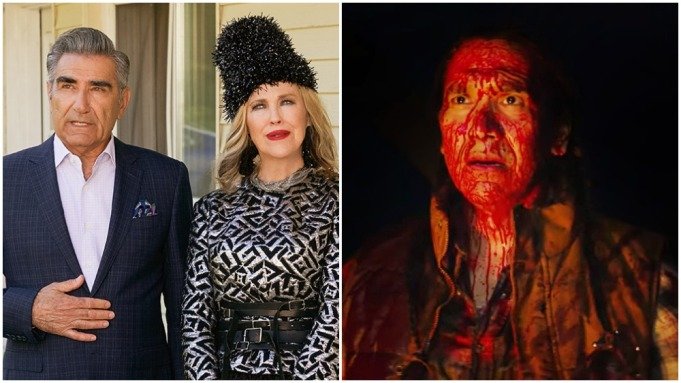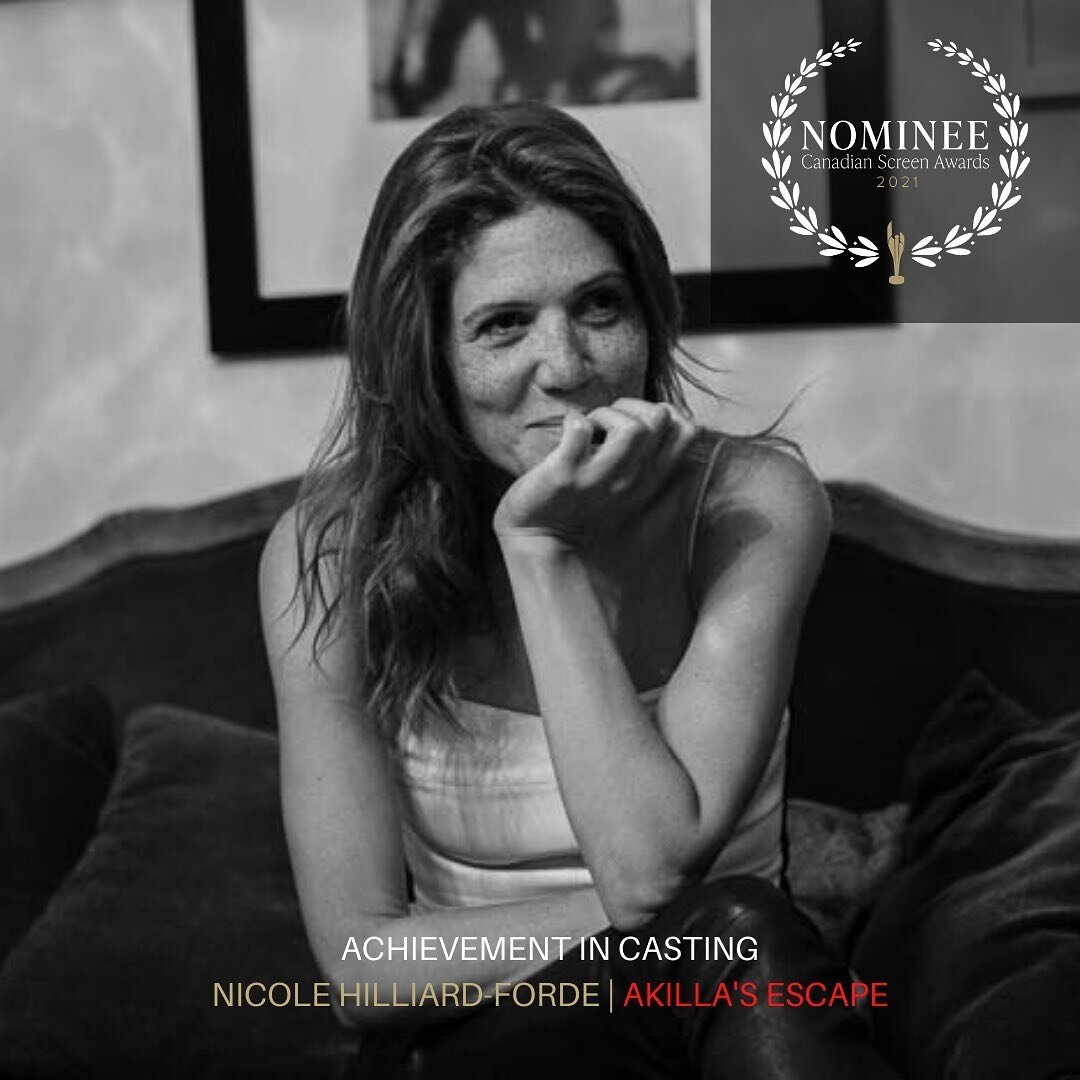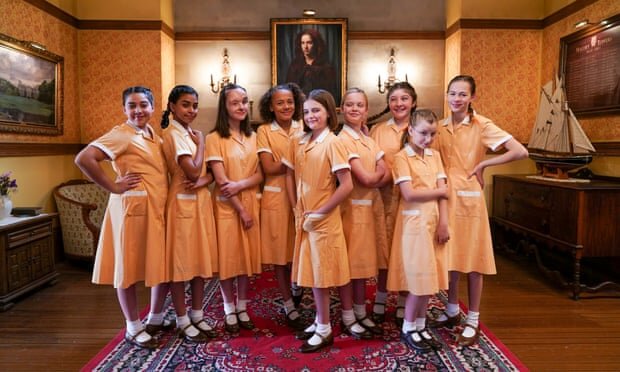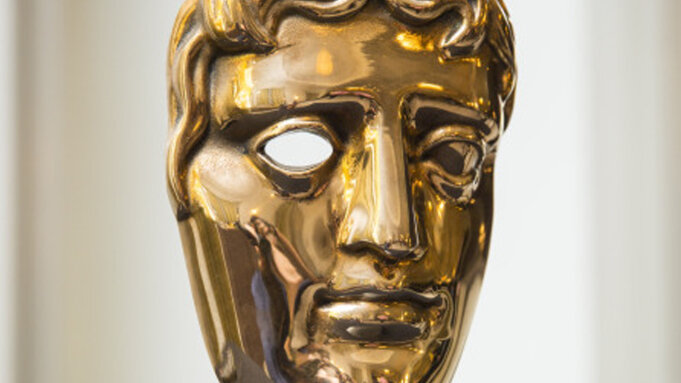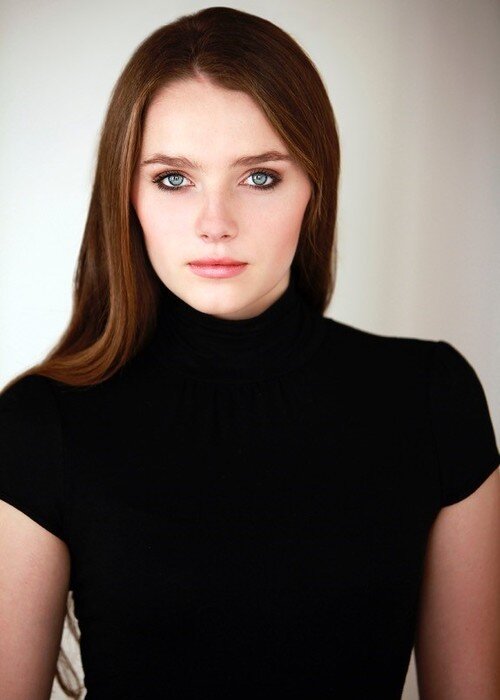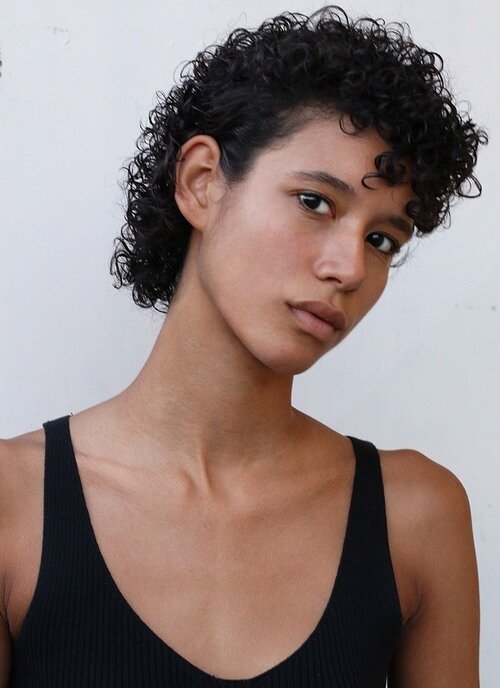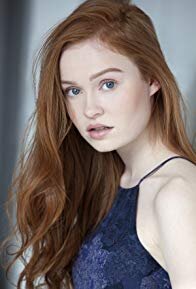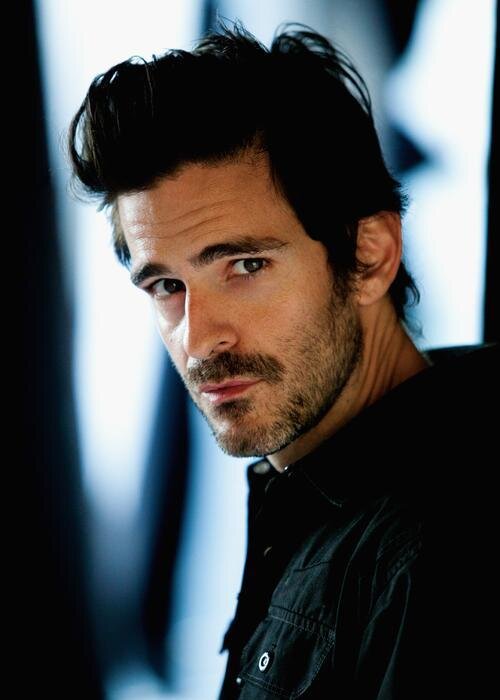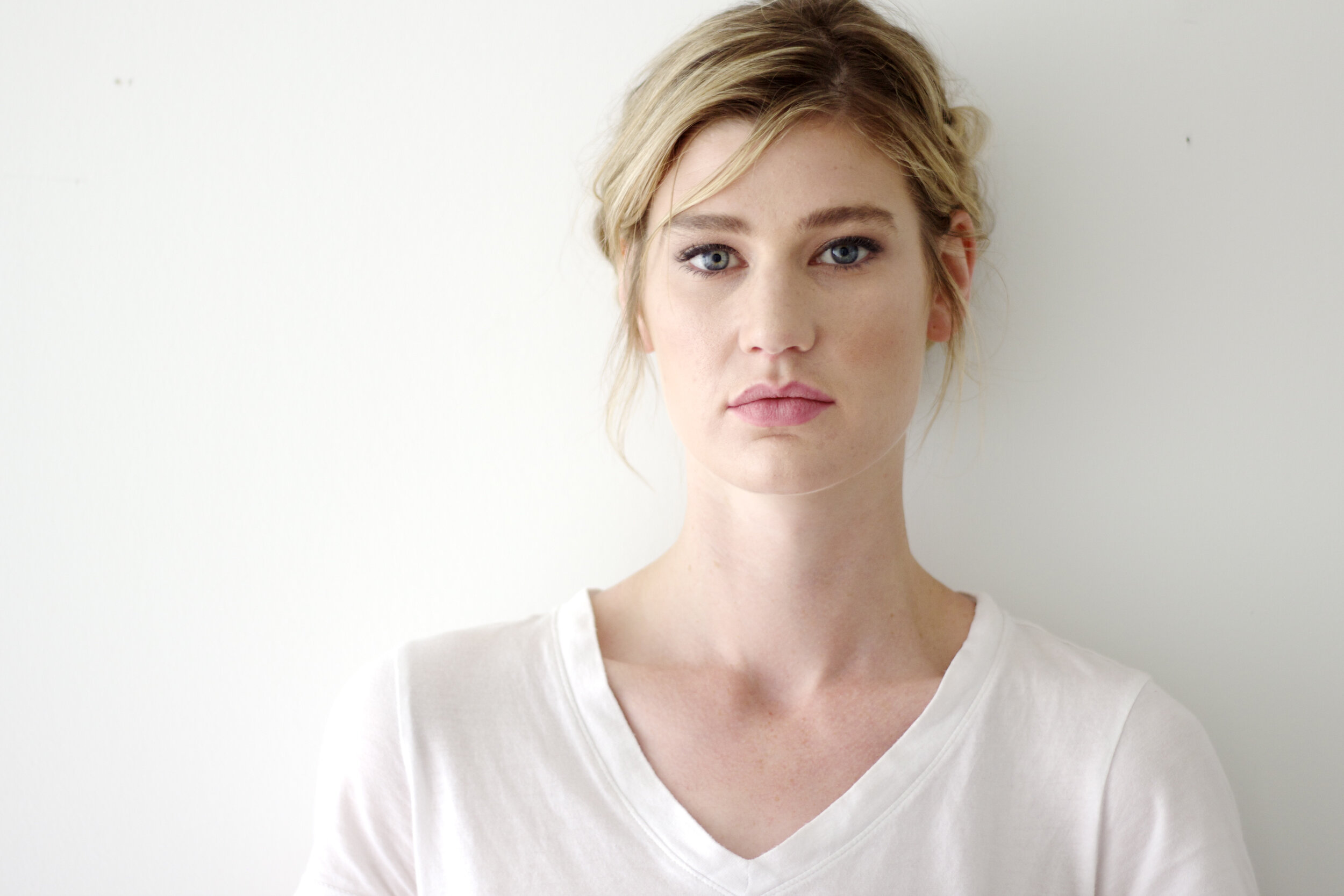The Tribeca Film Festival on Tuesday revealed its 2021 lineup, with 66 films spanning three competition sections as well as the annual event’s Viewpoints, Spotlight, Midnight, Movies Plus, and Tribeca Critics’ Week sections.
The festival will run June 9-20 with a mix of live in-person events at outdoor venues across all New York City boroughs. It kicks off with the world premiere of Warner Bros’ In the Heights, the adaptation of Lin-Manuel Miranda’s Broadway play set in the city’s Washington Heights neighborhood.
Other pics in the lineup that includes 56 world premieres are a selection of films that saw their 2020 Tribeca slots scrapped by the pandemic. There is also a series of Juneteenth programming throughout the sections that will celebrate voices from the African Diaspora, with special emphasis on African-American artists, performers, filmmakers, and interdisciplinary creators. The curation comes as this year’s dates had to be shifted to June from the fest’s usual April slot.
“Despite the challenges our industry faced this past year, it did not stop filmmakers, artists, and storytellers from creating compelling, entertaining, and thought-provoking content,” said Paula Weinstein, Chief Content Officer of Tribeca Enterprises, in announcing the lineup today. “The selections for each of these categories represent the tenacity and commitment of our creative community and we are so proud to include them as part of this year’s festival and share them with our returning in-person audiences.”
Here’s the lineup revealed today, with 60% of the feature films directed by female, BIPOC and LGBTQ+ filmmakers among a record-high 11,222 total submissions across all categories. More programming will be announced in the coming weeks.
U.S. NARRATIVE COMPETITION
Catch the Fair One, directed and written by Josef Kubota Wladyka. Produced by Mollye Asher, Kimberly Parker, Josef Kubota Wladyka. (United States) – World Premiere. In this absorbing revenge thriller executive produced by Darren Aronofsky, a Native American boxer embarks on the fight of her life when she goes in search of her missing sister. With Kali Reis, Daniel Henshall, Tiffany Chu, Michael Drayer, Kimberly Guerrero, Lisa Emery, Kevin Dunn.
God’s Waiting Room, directed and written by Tyler Riggs. Produced by Tyler Riggs, Suvi Riggs. (United States) – World Premiere. As the summer drags on in central Florida, a young musician, a charismatic hustler, and a man adjusting to life after prison intersect on a dangerous path. With Nisalda Gonzalez, Matthew Leone, Tyler Riggs, Michelle Nuñez, Ray Benitez, Renata Eastlick. In English, Spanish with English subtitles.
Mark, Mary & Some Other People, directed and written by Hannah Marks. Produced by Hannah Marks, Pete Williams, Jon Lullo, Brendan Walter, Jonathan Duffy, Kelly Williams. (United States) – World Premiere. Young newlyweds Mark and Mary agree to try exploring other sexual partners, with surprising results in this unexpectedly charming love story from writer/director Hannah Marks. With Ben Rosenfield, Hayley Law, Odessa A’Zion, Nik Dodani, Matt Shively, Sofia Bryant.
The Novice, directed and written by Lauren Hadaway. Produced by Ryan Hawkins, Kari Hollend, Steven Sims, Zack Zucker. (United States) – World Premiere. Isabelle Fuhrman (Orphan, 2009) plays Alex Dal, a queer college freshman who joins her university’s rowing team and undertakes an obsessive physical and psychological journey to make it to the top varsity boat, no matter the cost. With Isabelle Fuhrman, Amy Forsyth, Dilone Kate Drummond, Jonathan Cherry, Charlotte Ubben.
Poser, directed by Ori Segev, Noah Dixon, written by Noah Dixon. Produced by Drew Johnson, Juli Sasaki, Brett Reiter, Josh Nowak. (United States) – World Premiere. Lennon observes on the sidelines of the thriving Columbus indie music scene, yearning for a personal connection that might shepherd her into the inner sanctum. Enter the enigmatic Bobbi Kitten, who takes Lennon under her confident wing—unwittingly entangling herself in a dark obsession. With Sylvie Mix, Bobbi Kitten.
Queen of Glory, directed and written by Nana Mensah. Produced by Jamund Washington, Kelley Robins Hicks, Baff Akoto, Nana Mensah, Anya Migdal. (United States) – World Premiere. Ghanaian-American Sarah is all set to abandon her Ivy League doctoral program to follow her married lover across the country. Her plans are derailed, however when her mother’s sudden death leaves her the owner of a neighborhood bookshop in the Bronx. With Nana Mensah, Meeko Gattuso, Oberon KA Adjepong, Adam Leon. *Part of the Juneteenth programming
DOCUMENTARY COMPETITION
All These Sons, directed by Bing Liu, Joshua Altman. Produced by Zak Piper, Kelsey Carr, Bing Liu, Joshua Altman. (United States) – World Premiere. On Chicago’s South and West sides, the scourge of guns and gangs is destroying countless lives. Taking matters into their own hands, two men dedicate their lives educating, empowering and healing young Black men at high risk for being victims—or perpetrators—of deadly gun-violence.
Ascension (Ascension 登楼叹), directed by Jessica Kingdon. Produced by Kira Simon-Kennedy, Jessica Kingdon, Nathan Truesdell. (United States) – World Premiere. The absorbingly cinematic Ascension explores the pursuit of the “Chinese Dream Driven by mesmerizing—and sometimes humorous—imagery, this observational documentary presents a contemporary vision of China that prioritizes productivity and innovation above all. In Chinese with English subtitles.
Blind Ambition, directed by Robert Coe, Warwick Ross, written by Warwick Ross, Robert Coe, Paul Murphy, Madeleine Ross. Produced by Warwick Ross, Robert Coe. (Australia) – World Premiere. The inspiring story of four Zimbabwean men who form their country’s first Wine Tasting Olympics team and the mission that drives them to compete. In English, Shona with English subtitles.
Fathom, directed by Drew Xanthopoulos. Produced by Megan Gilbride. (United States) – World Premiere. Filmmaker & cinematographer Drew Xanthopoulos delivers a visual and aural wonder of a documentary—an immersive and sensorial film that follows researchers working to finally decode the communication of humpback whales. With Dr. Michelle Fournet, Dr. Ellen Garland. An Apple TV+ release.
The Kids, directed by Eddie Martin. Produced by Shannon Swan. (Australia) – World Premiere. 26 years after indie cult classic Kids was released to an unsuspecting nation, this documentary explores the divergent paths of the original cast, delivering an unflinching look back at one of the most iconic films of the 1990’s.
Like a Rolling Stone: The Life & Times of Ben Fong-Torres, written, directed and produced by Suzanne Joe Kai. (United States) – World Premiere. Suzanne Joe Kai’s intimate documentary shows us how the Rolling Stone writer and editor defined the cultural zeitgeist of the ’60s and ’70s. With Ben Fong-Torres, Cameron Crowe, Annie Leibovitz, Carlos Santana, Elton John, Steve Martin, Bob Weir, Quincy Jones, and more.
On the Divide, directed and written by Leah Galant, Maya Cueva. Produced by Diane Becker, Melanie Miller, Amanda Spain, Elizabeth Woodward. (United States) – World Premiere. On the Divide brings us into the lives of three Latinx people in McAllen Texas, whose different beliefs end up coming to a head at the last abortion clinic in the US/Mexico border. In English, Spanish with English subtitles.
The Scars of Ali Boulala, directed by Max Eriksson, written by Max Eriksson, Mikel Cee Karlsson. Produced by Mario Adamson, Ashley Smith. (Sweden, Norway) – World Premiere. In Max Eriksson’s audacious debut, Swedish skateboarding prodigy Ali Boulala—alongside other pros like Rune Glifberg and Arto Saari—looks back on the DIY videos and fast-paced lifestyle of his coming-of-age in the ’90s skating scene. With Ali Boulala, Rune Glifberg, Arto Saari, Ewan Bowman, Dustin Dollin, Kevin “Spanky” Long. In English, Finnish, Swedish with English subtitles.
INTERNATIONAL NARRATIVE COMPETITION
All My Friends Hate Me, directed by Andrew Gaynord, written by Tom Palmer, Tom Stourton. Produced by Tom Palmer. (UK) – World Premiere. Genuine but increasingly insecure Pete is cautiously excited about reuniting with his college crew for a birthday weekend of memories, partying and earnest reconnection at a picturesque English manor. Best laid plans, dear audience. With Tom Stourton, Charly Clive, Georgina Campbell, Joshua Mcguire, Antonia Clarke.
Brighton 4th, directed by Levan Koguashvili, written by Boris Frumin, Levan Koguashvili. Produced by Irakli Rodonaya, Olena Yershova, Levan Koguashvili. (Bulgaria, Georgia, Monaco, Russia, United States) – World Premiere. Tribeca shorts alum Levan Koguashvili returns to the festival with this warm and sensitively rendered story of a Georgian wrestler, Kakhi, en route to Brooklyn to help his son out of a gambling debt. With Levan Tediashvili, Nadezhda Mikhalkova, Giorgi Tabidze, Kakhi Kavsadze. In English, Georgian, Russian with English subtitles.
Do Not Hesitate, directed by Shariff Korver, written by Jolein Laarman. Produced by Leontine Petit. (Netherlands) – World Premiere. A truck carrying a Dutch military convoy on a peacekeeping mission breaks down somewhere in the desert. As a group of soldiers waits for a repair team to arrive, they encounter a local boy who refuses to leave. With Joes Brauers, Tobias Kersloot, Spencer Bogaert, Omar Alwan. In Arabic, Dutch, English with English subtitles.
Roaring 20’s (Années 20), directed by Elisabeth Vogler, written by François Mark, Elisabeth Vogler, Noémie Schmidt, Joris Avodo. Produced by Laurent Rochette. (France) – World Premiere. In a single unbroken shot, Roaring 20’s gives viewers the chance not only to travel to Paris, but to live a day in the life there during the COVID-19 pandemic. Audiences can experience first hand both the universality of life in 2020, as well as the specificity and beauty of a summer day in the French capital. With Vladimir Seguin, Alice de Lencquesaing, Noémie Schmidt, Aurore Déon, Manuel Severi, Adil laboudi, Zoé Fauconnet, Léo Poulet, Fanny Santer, Lila Poulet-Berenfeld, Lilou Guillot, Elsa Guedj, Guillaume Pottier, Mehdi Djaadi, François Mark, Margaux Bonin, François De Brauer, François Rollin, Elie Salleron, Joris Avodo, Paul Scarfoglio, Léa Moret, Elise Tilloloy, Jean Thevenin. In French with English subtitles.
Souad, directed by Ayten Amin, written by Mahmoud Ezzat, Ayten Amin. Produced by Sameh Awad. (Egypt, Tunisia, Germany) – International Premiere. Amin’s assured, harrowing debut follows an Egyptian university student (a breakout Bassant Ahmed) who leads a double life, presenting different versions of herself to her conservative society and her tradition-flaunting peers. With Bassant Ahmed, Basmala Elghaiesh, Hussein Ghanem, Hager Mahmoud, Sarah Shedid, Carol Ackad. In Arabic with English subtitles.
Wild Men (Vildmænd), directed by Thomas Daneskov, written by Thomas Daneskov, Morten Pape. Produced by Lina Flint. (Denmark) – World Premiere. Hilariously ill-equipped to live off the land yet clad in a Neanderthal-like ensemble of animal skins, Martin wanders the Norwegian forest in a misguided attempt to find a sense of purpose and independence, a wife and two children back at home be damned. With Rasmus Bjerg, Zaki Youssef, Sofie Gråbøl, Bjørn Sundquist. In Danish with English subtitles.
SPOTLIGHT NARRATIVE
12 Mighty Orphans, directed by Ty Roberts. Produced by Houston Hill, Brinton Bryan, Michael De Luca, Angelique De Luca, Ty Roberts. (United States) – New York Premiere. The true story of the Mighty Mites, the football team of a Fort Worth orphanage who, during the Great Depression, went from playing without shoes—or even a football—to playing for the Texas state championships. Over the course of their winning season these underdogs and their resilient spirit became an inspiration to their city, state, and an entire nation in need of a rebound, even catching the attention of President Franklin D. Roosevelt. With Luke Wilson, Vinessa Shaw, Martin Sheen, Robert Duvall, Wayne Knight, Jake Austin Walker, Scott Haze, Levi Dylan, Jacob Lofland. A Sony Pictures release.
False Positive, directed by John Lee, written by John Lee & Ilana Glazer. Produced by John Lee, Ilana Glazer, Jonathan Wang. (United States) – World Premiere. After fertility struggles, a couple seem to have found their savior in a celebrated reproductive specialist. But as hope transforms to happiness, the now-expectant mother is thrown into a spiral of suspicion, threatening her grasp on reality. With Ilana Glazer, Justin Theroux, Gretchen Mol, Sophia Bush, Zainab Jah, and Pierce Brosnan. A Hulu release.
How It Ends, directed and written by Daryl Wein, Zoe Lister-Jones. Produced by Daryl Wein, Zoe Lister-Jones. (United States) – New York Premiere. It’s the end of the world as we know it…and Liza feels…fine?! Featuring a who’s who of comedic favorites, and shot completely during the quarantine of 2020, How It Ends is a hilarious and poignantly resonant, pre-apocalyptic comedy for our collective ages. With Zoe Lister-Jones, Cailee Spaeny, Olivia Wilde, Fred Armisen, Helen Hunt, Lamorne Morris, Nick Kroll.
India Sweets and Spices, directed and written by Geeta Malik. Produced by Gigi Pritzker, John Penotti, Naomi Despres, Sidney Kimmel. (United States) – World Premiere. In Geeta Malik’s fresh and fun take on the classic coming of age story, a college freshman confronts her parents’ values in order to understand her own evolving identity. With Sophia Ali, Manisha Koirala, Adil Hussain, Deepti Gupta, Rish Shah.
Italian Studies, directed and written by Adam Leon. Produced by Brad Becker-Parton, Joshua Astrachan, Jamund Washington, Andrea Roa, Jason Reif. (United States) – World Premiere. A mysterious woman (Vanessa Kirby) wanders the streets of Manhattan in a confused state. Finding herself inexplicably drawn to a charismatic teenager, she embarks on an adventure with him through the cityscape and into the unknown. With Vanessa Kirby, Simon Brickner, Annika Wahlsten, Annabel Hoffman.
The Last Film Show, directed and written by Pan Nalin. Produced by Dheer Momaya. (India) – World Premiere. A 9-year-old boy in a remote village in India begins a lifelong love affair with cinema when he bribes his way into a rundown movie palace and spends a Summer watching movies from the projection booth. With Bhavin Rabari, Vikas Bata, Richa Meena, Bhavesh Shrimali, Dipen Raval, Rahul Koli. In Other with English subtitles.
Opening Night Film Spotlight Section
No Man of God, directed by Amber Sealy, written by Kit Lesser. Produced by Daniel Noah, Lisa Whalen, Elijah Wood, Kim Sherman. (United States) – World Premiere. To better understand the infamous serial killer’s crimes, FBI investigator Bill Hagmaier sits down with Ted Bundy for multiple jailhouse interviews over five years. Their conversations lead to unexpected results, both philosophically and personally. With Elijah Wood, Luke Kirby, Aleksa Palladino, Robert Patrick.
Werewolves Within, directed by Josh Ruben, written by Mishna Wolff. Produced by Jason Altman, Margaret Boykin, Andrew Lieberman, Natalie Metzger, Matt Miller, Benjamin Wiessner, Sam Richardson. (United States) – World Premiere. In Josh Ruben’s video game-inspired horror-comedy, a newly assigned forest ranger checks into a quaint Vermont inn just as a snowstorm cuts him and the eccentric townsfolk off from civilization. Yet frigid weather isn’t their biggest concern—that’d be the bloodthirsty creature picking them off one by one. With Sam Richardson, Milana Vayntrub, Michaela Watkins, Cheyenne Jackson, Glenn Fleshler. An IFC Films release
SPOTLIGHT DOCUMENTARY
A-ha the Movie, directed and written by Thomas Robsahm, co-directed by Aslaug Holm. Produced by Yngve Sæther. (Norway, Germany) – World Premiere. Featuring new interviews and behind-the-scenes footage, Thomas Robsahm’s portrait of the band behind “Take On Me” follows their creative adventures and challenges after reaching global superstardom—all set to their catchiest synth hooks. With Morten Harket, Magne Furuholmen, Pål Waaktaar-Savoy. In English, Norwegian with English subtitles.
Bernstein’s Wall, directed and written by Douglas Tirola. Produced by Susan Bedusa. (United States) – World Premiere. An enlightening, complex look at one of the greatest figures in 20th century classical music whose passion and creativity guided him well beyond the concert hall. With Leonard Bernstein.
BITCHIN’: The Sound and Fury of Rick James, directed by Sacha Jenkins, written by Sacha Jenkins, Steve Rivo, Jason Pollard. Produced by Steve Rivo. (United States) – World Premiere. This incredibly entertaining profile of legendary funk/R&B icon Rick James captures the peaks and valleys of his storied career to reveal a complicated and rebellious soul, driven to share his talent with the world. A Showtime Documentary Films release. *Part of the Juneteenth programming
A Choice of Weapons: Inspired by Gordon Parks, directed by John Maggio. Produced by John Maggio, Monica Berra, Richard Lowe, George Kunhardt, Teddy Kunhardt, Matthew Henderson (United States) – World Premiere. This documentary chronicles renaissance man Gordon Parks’ stellar career from staff photographer for LIFE magazine, through his artistic development photographing everyday Americans, through his evolution as a novelist and groundbreaking filmmaker. An HBO Documentary Films release. *Part of the Juneteenth programming
Lady Boss: The Jackie Collins Story, directed by Laura Fairrie. Produced by John Battsek, Lizzie Gillett. (UK) – World Premiere. Literary phenomenon. Revolutionary storyteller. Feminist icon. Novelist Jackie Collins’s trailblazing and glamorous life is remembered and reconsidered in Laura Fairrie’s admiring documentary portrait. A CNN Films Release.
LFG, directed by Andrea Nix Fine, Sean Fine, written by Andrea Nix Fine. Produced by Andrea Nix Fine, Sean Fine, Abby Greensfelder. (United States) – World Premiere. Academy Award® Oscar winners Andrea Nix Fine and Sean Fine take us inside the U.S. women’s national soccer league and their continuing fight for equal pay in an effort to create real change in women’s sports. With Megan Rapinoe, Jessica McDonald, Becky Sauerbrunn, Kelley O’Hara, Christen Press, Sam Mewis, Julie Foudy. An HBO Max release.
The Lost Leonardo, directed by Andreas Koefoed. Produced by Andreas Dalsgaard, Christoph Jörg. (Denmark, France, Sweden) – World Premiere. The Lost Leonardo tells the inside story behind the Salvator Mundi, the most expensive painting ever sold at $450 million, claimed to be a long-lost masterpiece by Leonardo da Vinci. From the moment it is purchased from a shady New Orleans auction house, and its buyers discover masterful brushstrokes beneath its cheap restoration, the fate of the Salvator Mundi is driven by an insatiable quest for fame, money and power. But as its price soars, so do questions about its authenticity. Is this multi-million dollar painting actually by Leonardo – or do certain power players simply want it to be? Unravelling the hidden agendas of the world’s richest men and most powerful art institutions, The Lost Leonardo reveals how vested interests became all-important, and the truth secondary. With Dianne Modestini, Yves Bouvier, Christian Kirk Muff, Robert Simon, Alexander Parish, Luke Syson, Martin Kemp, Frank Zöllner, Jacques Franck. A Sony Pictures Classics Release.
The Price of Freedom, directed by Judd Ehrlich. Produced by Judd Ehrlich, Aidan Tumas, Elena Gaby. (United States) – World Premiere. The NRA has become an increasing force of political influence, challenging gun control legislation as a direct attack on personal freedom. This deep dive into American gun culture is a passionate call to action. With Rep. Gabby Giffords, Sen. Chris Murphy, Rep. Lucy McBath, David Keene, Fred Guttenberg, Nicole Hockley, X González.
Roadrunner: A Film About Anthony Bourdain, directed by Morgan Neville. Produced by Caitrin Rogers, Morgan Neville. (United States) – World Premiere. Bad boy chef. Bestselling author. Global adventurer. Academy Award® winner Morgan Neville’s (20 Feet From Stardom) documentary brims with the same energy, curiosity, and deep humanity that made Anthony Bourdain the superstar whose life touched so many. A CNN Films, HBO Max and Focus Features release. Spotlight Documentary.
Stockholm Syndrome, directed by The Architects. Produced by Matthew Perniciaro, Michael Sherman, Bow and Arrow Entertainment, Olive Hill Media. (United States, Sweden) – World Premiere. Musician and cultural icon A$AP Rocky explores his life and career while fighting for his freedom after being arrested in Stockholm, Sweden. Placed in solitary confinement amidst the rising tensions of the case becoming a global media storm reaching the highest levels of government, Rocky contemplates who he truly is and how this experience will shape who he is meant to become. With A$AP Rocky.
Wolfgang, directed by David Gelb, written by Brian McGinn. Produced by Jason Sterman, Brian McGinn, David Gelb. (United States) – World Premiere. From acclaimed filmmaker and Tribeca alum David Gelb (Jiro Dreams of Sushi, Chef’s Table) comes another mouthwatering delight of a film about one of the first “celebrity chefs” to rule the scene and a pioneer in the world of California cuisine, Wolfgang Puck. With Wolfgang Puck, Barbara Lazaroff, Byron Puck, Christina Puck, Nancy Silverton, Evan Funke, Ruth Reichl, Laurie Ochoa & Michael Ovitz. In Austro-Bavarian, English with English subtitles. A Disney+ release.
VIEWPOINTS
7 Days, directed by Roshan Sethi, written by Karan Soni, Roshan Sethi. Produced by Liz Cardenas, Mel Eslyn. (United States) – World Premiere, Feature Narrative. As if their pre-arranged date, organized by their traditional Indian parents, wasn’t uncomfortable enough, Ravi and Rita are forced to shelter in place together as COVID-19’s reach intensifies. Hopefully for their sake, opposites do indeed attract. With Karan Soni, Geraldine Viswanathan, Mark Duplass, Zenobia Shroff, Aparna Nancherla, Gita Reddy, Jeffrey Self.
Accepted, directed by Dan Chen. Produced by Jason Y. Lee, Dan Chen, Jesse Einstein, Mark Monroe. (United States) – World Premiere, Feature Documentary. The ambitious students of the TM Landry Prep School enjoyed a remarkable 100% acceptance rate into the county’s most elite colleges until an explosive NY Times article exposed the controversial teaching methods of its dynamic founder.
as of yet, directed by Chanel James, Taylor Garron, written by Taylor Garron. Produced by Ashley Edouard, Taylor Garron. (United States) – World Premiere, Feature Narrative. Told entirely through video calls and digital diaries, Naomi (Taylor Garron who also wrote and co-directs) navigates a problematic roommate and a burgeoning romance all while locked down during the Coronavirus pandemic. With Taylor Garron, Eva Victor, Amir Khan, Quinta Brunson, Ayo Edebiri. *Part of the Juneteenth programming
The Beta Test, directed and written by Jim Cummings, PJ McCabe, written by Jim Cummings, PJ McCabe. Produced by Vanishing Angle. (United States) – North American Premiere, Feature Narrative. After indulging in a mysterious, toe-curling sexual encounter, a Hollywood talent agent frantically struggles to keep his career, his relationship, and his sanity from unravelling in Jim Cummings’ satirical thriller. With Jim Cummings, Virginia Newcomb, PJ McCabe, Jessie Barr, Keith Powell, Kevin Changaris. In English, Mandarin, Swedish with English subtitles. An IFC Films release.
Building a Bridge, directed by Evan Mascagni, Shannon Post. Produced by Evan Mascagni, Shannon Post, Nick Capezzera. (United States) – World Premiere, Feature Documentary. Building a Bridge profiles Father James Martin, an outspoken New York-based priest and author who works to connect the Catholic Church with the LGBTQ+ community through compassion, inclusion, love, and acceptance.
The Conductor, directed by Bernadette Wegenstein, written by Bernadette Wegenstein and Stefan Fauland. Produced by Annette Porter. (United States) – World Premiere, Feature Documentary. In this exhilarating documentary, Leonard Bernstein’s protégée Marin Alsop reveals how she smashed the glass ceiling to become an internationally renowned conductor.
The Death Of My Two Fathers, directed by Sol Guy, written by Sol Guy, Matthew Cooke, Shoshana Guy. Produced by Stine Moisen, Sol Guy. (United States) – US Premiere, Feature Documentary. After putting it off for twenty years, filmmaker Sol Guy finally confronts the six tapes his father recorded before dying. Using those tapes as a framework, Guy recounts his family’s story—and his own—for his two teenage kids. With Sol Guy, William Guy, Travestine Guy, Freye Parkhouse, Barbara Ogletree, Leora Gesser. *Part of the Juneteenth programming
The Justice of Bunny King, directed by Gaysorn Thavat, written by Sophie Henderson. Produced by Emma Slade. (New Zealand) – World Premiere, Feature Narrative. Bunny, a woman at the outskirts of society, fights to be reunited with her children. When her teenage niece needs help, Bunny takes her under her wing, and together, they make a stand against the cards they’ve been dealt. With Essie Davis, Thomasin McKenzie.
The Legend of the Underground, directed and produced by Giselle Bailey, Nneka Onuorah. (Nigeria, United States) – World Premiere, Feature Documentary. A timely documentary uncovering rampant discrimination in Nigeria while exploring the lives of several non conformist men who must choose to live imperiled lives there or flee to the USA. An HBO Documentary Films release. *Part of the Juneteenth programming
North By Current, directed and written by Angelo Madsen Minax. Produced by Felix Endara. (United States) – North American Premiere, Feature Documentary. A thoughtful, provocative rumination on identity and familial responsibility, North By Current turns an unflinching eye toward a family in the process of repair.
Perfume de Gardenias, directed by Macha Colón, written by Gisela Rosario Ramos. Produced by Arleen Cruz-Alicea, Consuelo Castillo, Adriana Ángel, Gisela Rosario Ramos. (Puerto Rico, Colombia) – World Premiere, Feature Narrative. After the death of her husband, a grieving elderly woman is enlisted by a coterie of gossipy elderly women in her neighborhood to plan and create custom funerals – offering seniors a chance to plan in advance how they want their funerals to be presented, and how they want their lives to be celebrated. With Luz María Rondón, Sharon Riley, Katira Álvarez, Carmen Nydia Velázquez, Carmen Milagros Ortiz, Flor Joglar, Abner Rivera. In Spanish with English subtitles.
Sisters on Track, directed by Corinne van der Borch, Tone Grøttjord. Produced by Anita Rehoff Larsen, Tone Grottjord. (United States) – North America Premiere, Feature Documentary. A coming of age story set in New York, Sisters on Track is about hope, belonging, and the metaphorical and literal sisterhood of young athletes Tai, Rainn, and Brooke Sheppard. A Netflix release.
Wu hai, directed and written by Ziyang Zhou. Produced by Luna Wang, Yini Qian, Li Zhu (China) – North American Premiere, Feature Narrative. A dinosaur theme park in the desert of Inner Mongolia is the setting for this remarkable dynamic drama in which a man’s whole world unravels over the course of three fateful days. With Xuan Huang, Zishan Yang, Tumen. In Chinese with English subtitles.
MIDNIGHT
Shapeless, directed by Samantha Aldana, written by Kelly Murtagh, Bryce Parsons-Twesten. Produced by Lizzie Guitreau, R. Todd Campbell, William Ramsey, Brian C. Miller Richard. (United States) – World Premiere, Feature Narrative. Out in public, Ivy is a New Orleans lounge singer trying to make a name for herself. When alone, though, she suffers from a terrifying eating disorder. And the more she hides her struggles, the stronger her inner demons become. With Kelly Murtagh, Bobby Gilchrist, Jamie Neumann, Marco Dapper, Erika Ashley, Gralen Bryant Banks.
Ultrasound, directed by Rob Schroeder, written by Conor Stechschulte. Produced by Rob Schroeder, Georg Kallert, Charlie Prince. (United States) – World Premiere, Feature Narrative. After his car breaks down, Glen spends one hell of an odd night with a married couple, setting into motion a chain of events that alter their lives plus those of several random strangers. With Vincent Kartheiser, Chelsea Lopez, Breeda Wool, Tunde Adebimpe, Rainey Qualley, Bob Stephenson.
We Need To Do Something, directed by Sean King O’Grady, written by Max Booth III. Produced by Bill Stertz, Josh Malerman, Ryan Lewis, Peter Block. (United States) – World Premiere, Feature Narrative. Trapped inside their bathroom for days after a tornado ravages their home, a family of four struggles to keep their composure. That’s nothing, however, compared to what’s coming for them beyond the bathroom’s walls. With Sierra McCormick, Vinessa Shaw, Pat Healy, Lisette Alexis, John James Cronin.
MOVIES PLUS
The Father of the Cyborgs, directed and written by David Burke. Produced by David Burke, Sean O’Cualain. (Ireland) – World Premiere, Feature Documentary. Dr. Kennedy made headlines for implanting electrodes in the brain of a paralyzed man then teaching the patient to control a computer. After much controversy he later began experimenting on himself.
After the Movie: A conversation with the filmmakers and scientific experts about Dr. Phil Kennedy’s extraordinary work and legacy within his field of computer-brain interface and beyond. Hosted by the Alfred P. Sloan Foundation.
The Neutral Ground, directed and written by CJ Hunt. Produced by Darcy McKinnon. (United States) – World Premiere, Feature Documentary. With sharp humor and a critical sense of curiosity, comedian CJ Hunt documents the fraught removal of four Confederate monuments in New Orleans. As the scope of his film expands, Hunt investigates the origins of a romanticized Confederacy and confronts hard truths much of America has yet to face. With CJ Hunt. *Part of the Juneteenth programming
After the Movie: A conversation with CJ Hunt, Executive Producer Roy Wood Jr. (The Daily Show), and Pulitzer-Prize winning creator of the 1619 Project, Nikole Hannah-Jones on confronting the ongoing legacy of America’s Original Sin.
No Straight Lines: The Rise of Queer Comics, directed by Vivian Kleiman. Produced by Vivian Kleiman, Justin Hall. (United States) – World Premiere, Feature Documentary. A lively look at five LGBTQ+ comic book artists whose careers go from the underground scene to the cover of Time Magazine and the international stage. With Alison Bechdel (Fun Home), Jennifer Camper, Howard Cruse, Rupert Kinnard and Mary Wings.
After the Movie: A conversation with Alison Bechdel, Justin Hall, Rupert Kinnard and Vivian Kleiman.
The One and Only Dick Gregory, written and directed by Andre Gaines. Produced by Andre Gaines, Valerie Edwards. (United States) – World Premiere, Feature Documentary. This revealing portrait of comedian/activist Dick Gregory documents his many personal reinventions throughout the decades, from celebrity to civil rights hero and beyond, while hearing from the incredible entertainers who have been inspired by his blueprint. Executive Produced by Kevin Hart and Lena Waithe, with Dick Gregory, Chris Rock, Kevin Hart, Dave Chappelle, Lena Waithe, Harry Belafonte. *Part of the Juneteenth programming
After the Movie: A conversation with Andre Gaines, Executive Producer Lena Waithe, and Special Guests on the impact that Dick Gregory’s work has had on subsequent generations of artists and activists.
Paper & Glue, a JR Project. Produced by Sara Bernstein, Justin Wilkes, Dallas Brennan Rexer, Marc Azoulay. (France, United States) – World Premiere, Feature Documentary. From the favelas of Rio de Janeiro to the US-Mexico border to the courtyard of a supermax prison, JR’s large-scale photomurals have turned some of the most provocative spaces of the world into eye-catching immersive art that challenges perspectives and unites communities. In English, French, Portuguese, Spanish with English subtitles.
After the Movie: A conversation with Director and Artist JR.
Reflection: a walk with water, directed and written by Emmett Brennan. Produced by Emmett Brennan, Nick Brennan. (United States) – World Premiere, Feature Documentary. Filmmaker Emmett Brennan takes a “pilgrimage with water,” traveling the length of the Los Angeles Aqueduct on foot. Using California’s water crisis as a starting point, Brennan introduces principles to reshape human life with water in mind. With Kathy Bancroft, Connor Jones, Rhamis Kent, Gigi Coyle, Ariel Greenwood, Andy Lipkis.
After the Movie: A special performance by Jacob Collier and Justin Kauflin.
With/In (United States) – World Premiere, Feature Narrative. Shooting on iPhones during last year’s quarantine, an impressive collective of talent chronicles 2020 pandemic life’s myriad challenges and simple pleasures through narrative shorts. Sometimes poignant, other times funny and consistently free-spirited, this stripped-down anthology turns confinement into creativity.
After the Movie: A conversation with Directors Sanaa Lathan, Maya Singer, Morgan Spector, & more.
TRIBECA CRITICS’ WEEK
Ailey, directed by Jamila Wignot. Produced by Lauren DeFilippo. (United States) – New York Premiere, Feature Documentary. Told by the man himself, interwoven with decades of awe-inspiring dance footage of his world-famous dance company, Ailey recounts Alvin Ailey’s life story, from humble his Texan beginnings to becoming one of the most iconic choreographers of his generation. With Alvin Ailey, Judith Jamison, George Faison. A Neon release. *Part of the Juneteenth programming
The Ballad of a White Cow (The Ghasideyeh Gave Sefid), directed by Behtash Sanaeeha, Maryam Moghaddam, written by Maryam Moghaddam, Behtash Sanaeeha, Mehrdad Kouroshnia. Produced by Gholamreza Mousavi, Etienne de Ricaud. (France, Iran) – North American Premiere, Feature Narrative. Mina’s life is turned upside down when she learns that her husband Babak was innocent of the crime for which he was executed. Mina starts a silent battle against a cynical system for her own and her daughter’s sake.With Maryam Moghaddam, Alireza Sanifar. In Farsi with English subtitles.
Rita Moreno: Just a Girl Who Decided to Go For It, directed by Mariem Pérez Riera. Produced by Mariem Pérez Riera, Brent Miller. (United States) – New York Premiere, Feature Documentary. From New York City kid to movie star and to women’s rights activist, the indomitable Rita Moreno has enjoyed a storied life in the spotlight. Here the dynamic icon shares the challenges of being a Latina in Hollywood and the triumphs of her incredible 70 year career. With George Chakiris, Héctor Elizondo, Gloria Estefan, Tom Fontana, Morgan Freeman, Mitzi Gaynor, Whoopi Goldberg, Norman Lear, Eva Longoria, Justina Machado, Terrence McNally, Lin-Manuel Miranda, Rita Moreno, Karen Olivo. A Roadside Attractions release.
2020 FESTIVAL SELECTIONS
After having their planned Tribeca 2020 premieres canceled, the feature films of the 2020 Festival have been invited back for long awaited in-person premieres in 2021. Participating titles include:
499, directed by Rodrigo Reyes
All the Streets Are Silent, directed by Jeremy Elkin
The Art of Political Murder, directed by Paul Taylor
Asia, directed by Rothy Pribar
Banksy Most Wanted, directed by Aurélia Rouvier, Seamus Haley
Brian Wilson: Long Promised Road, directed by Brent Wilson
Clean, directed by Paul Solet
Contactado, directed by Marite Ugas
Cowboys, directed by Anna Kerrigan
Dear Mr. Brody, directed by Keith Maitland
Enemies of the State, directed by Sonia Kennebeck
Fries! The Movie, directed by Michael Steed
Fully Realized Humans, directed by Joshua Leonard
The God Committee, directed by Austin Stark
Happily, directed by BenDavid Grabinski
Harley, directed by Jean-Cosme Delaloye
Honeydew, directed by Devereux Milburn
I Carry You With Me, directed by Heidi Ewing
I Promise, directed by Marc Levin
Ice Cold, directed by Karam Gill
Jacinta, directed by Jessica Earnshaw
Kiss the Ground, directed by Josh Tickell, Rebecca Tickell
Kubrick by Kubrick, directed by Grégory Monro
La Madrina: The [Savage] Life of Lorine Padilla, directed by Raquel Cepeda
Landfall, directed by Cecilia Aldarondo
Larry Flynt for President, directed by Nadia Szold
The Last Out, directed by Sami Khan, Michael Gassert
Lorelei, directed by Sabrina Doyle
Love Spreads, directed by Jamie Adams
Marvelous and the Black Hole, directed by Kate Tsang
Materna, directed by David Grutnik
Miracle Fishing: Kidnapped Abroad, directed by Miles Hargrove
My Heart Can’t Beat Unless You Tell It To, directed by Jonathan Cuartas
No Future, directed by Andrew Irvine, Mark Smoot
Not Going Quietly, directed by Nicholas Bruckman
The Outside Story, directed by Casimir Nozkowski
P.S. Burn This Letter Please, directed by Michael Seligman, Jennifer Tiexiera
Pray Away, directed by Kristine Stolakis
Ricky Powell: The Individualist, directed by Josh Swade
She Paradise, directed by Maya Cozier
Simple As Water, directed by Megan Mylan
The Sit-In: Harry Belafonte Hosts The Tonight Show, directed by Yoruba Richen
Socks on Fire, directed by Bo McGuire
The State of Texas vs. Melissa, directed by Sabrina Van Tassel
Stateless (Apátrida), directed by Michèle Stephenson
Sweet Thing, directed by Alexandre Rockwell
Television Event, directed by Jeff Daniels
This Is Paris, directed by Alexandra Dean
Through the Night, directed by Lora Limbal
Wake Up on Mars (Réveil sur Mars), directed by Dea Gjinovci
Women In Blue, directed by Deirdre Fishel
Yusuf Hawkins: Storm Over Brooklyn, directed by Muta’Ali
